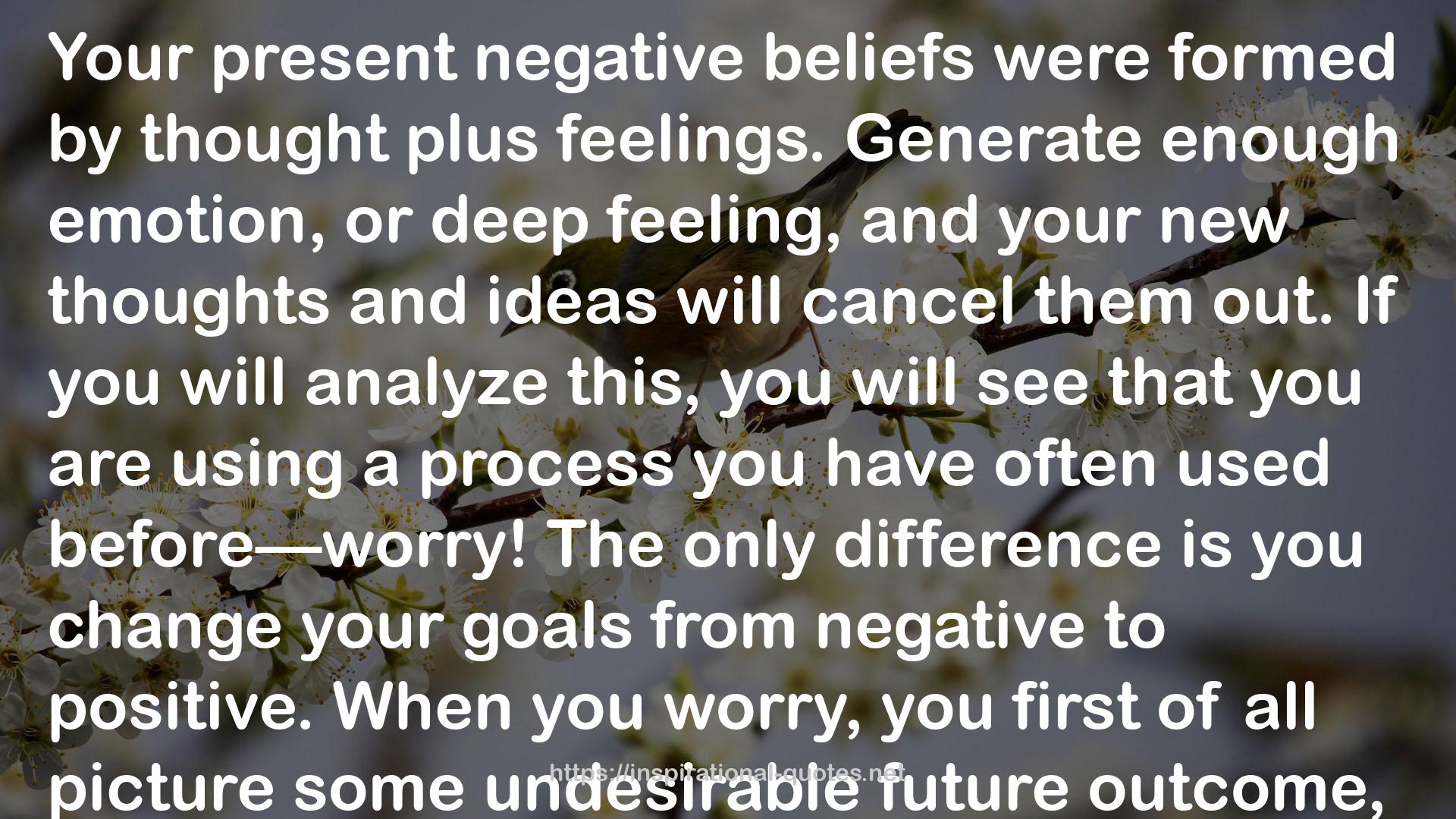" Your present negative beliefs were formed by thought plus feelings. Generate enough emotion, or deep feeling, and your new thoughts and ideas will cancel them out. If you will analyze this, you will see that you are using a process you have often used before—worry! The only difference is you change your goals from negative to positive. When you worry, you first of all picture some undesirable future outcome, or goal, very vividly in your imagination. You use no effort or willpower. But you keep dwelling on the “end result.” You keep thinking about it—dwelling on it—picturing it to yourself as a “possibility.” You play with the idea that it “might happen.” This constant repetition, and thinking in terms of “possibilities,” makes the end result appear more and more “real” to you. After time, appropriate emotions are automatically generated—fear, anxiety, discouragement—all these are appropriate to the undesirable end result you are worrying about. Now change the “goal picture”—and you can as easily generate “good emotions.” Constantly picturing to yourself, and dwelling on, a desirable end result will also make the possibility seem more real—and again appropriate emotions of enthusiasm, cheerfulness, encouragement, and happiness will automatically be generated. “In forming good emotional habits, and in breaking bad ones,” said Dr. Knight Dunlap, “we have to deal primarily with thought and thought habits. ‘As a man thinketh in his heart so is he. "
― Maxwell Maltz , Psycho-Cybernetics, A New Way to Get More Living Out of Life
